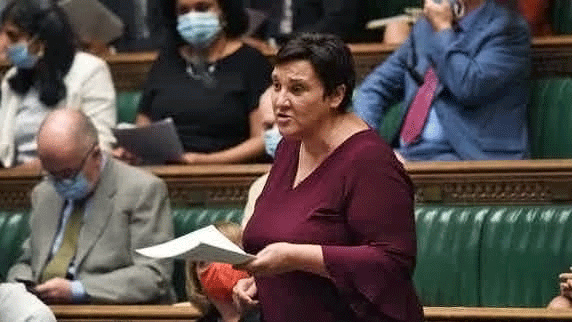Wikipedia is the world’s largest reference website. It would like us to think that it is “helping to create a world in which everyone can freely share in the sum of all knowledge.” But while anyone can edit Wikipedia pages, the number of active contributors (132,181 in the “last month”) is rather fewer than the 1.7 billion “unique-device” visitors. This means that a tiny minority of users are determining how the vast majority consumes its information. In other words, they are editors who have power over the content we see and what we do not.
Nowhere is this issue more visible than on the subject of trans rights. Last month, UnHerd reported on proceedings at Council of Europe, which debated Resolution 2417, ‘Combating rising hate against LGBTI people in Europe’. The Council listed a familiar group of nations — Hungary, Poland, Russia and Turkey — as hotbeds of rising LGBTI hate crime, but it also included a surprising addition: the United Kingdom.
Never mind that the accompanying report cited data that placed the UK fifth best in the entire continent, gender critical women speaking up for their rights in the UK were singled out for condemnation and even discussed in the same breath as Russia, notorious for its concentration camps in Chechnya.
In response, Tonia Antoniazzi — Labour MP for Gower — and four other members of the UK delegation tabled ten amendments, one of which would have deleted the words, “and the United Kingdom.” One might assume that this was just a run-in-the-mill case of parliamentary scrutiny, but what happened to Antoniazzi’s Wikipedia page after was chilling. Within hours of the debate, an editor called ‘Hotpantsraindance’ added a whole paragraph:
Not only was this paragraph factually inaccurate — three of the ten amendments were adopted — it included flagrant editorialisation. Five days later, the page became distinctly partisan. Citing a negative Pink News piece, ‘OwenBlacker’ added that the delegates had been “criticised for trying to play down the UK’s transphobia problem.”
The delegates had indeed been criticised by Pink News, but elsewhere they were praised for defending the UK from these scurrilous claims. The UK does not have a specific “transphobia problem”, and I say that as a trans person living here.
A third editor then joined the fray, removing the inaccurate claim in an attempt to restore some balance. Citing both UnHerd and Pink News, Dskjt indicated that, “the delegates received both praise and criticism.”
Sense at last? Alas not. Hotpantsraindance returned to the battlefield, reverted OwenBlacker’s edit and expunged the link to UnHerd. The Pink News account is once again unchallenged. Anyone reading Antoniazzi’s page today will be influenced by Pink News and probably not even realise — an alarming prospect when an MP’s reputation is at stake.
This is just one example of what goes on behind closed doors at Wikipedia. It is instructive of how a small group of activist editors can manipulate information to service their agenda, which is getting more blatant by the year. As Wikipedia co-creator Larry Sanger told Freddie Sayers in an interview with UnHerd, the site has become increasingly partisan, primarily espousing a singular viewpoint that increasingly represents “propaganda”. He added that the system was “broken beyond repair” and for that reason, he no longer trusts the website he created. Perhaps it’s time the rest of us followed suit.











Join the discussion
Join like minded readers that support our journalism by becoming a paid subscriber
To join the discussion in the comments, become a paid subscriber.
Join like minded readers that support our journalism, read unlimited articles and enjoy other subscriber-only benefits.
Subscribe